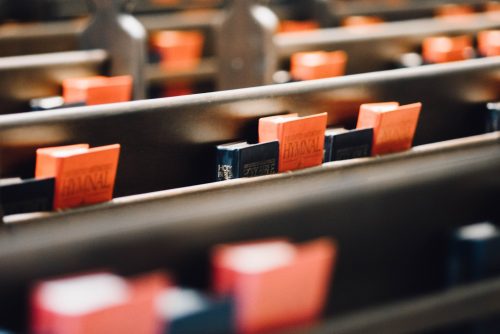By Gloria Gomez/UA Don Bolles Fellow/AZ Mirror
PHOENIX — Religious organizations would be granted wide berth to remain open during health crises if a bill sent Tuesday to Gov. Doug Ducey is signed into law.
The Republican-backed House Bill 2507 prohibits lawsuits against religious organizations on the basis that the organizations are religious, operate during a state of emergency or engage in the exercise of religion. It also empowers them to sue state and local governments for violating that prohibition. The measure is a relaunched attempt to protect religious organizations after a similar bill last year failed.
GET THE MORNING HEADLINES DELIVERED TO YOUR INBOXSUBSCRIBE
The bill has been championed by proponents as a protection of churches during states of emergency, when they were forced to close to prevent the spread of COVID-19. The Center for Arizona Policy, a conservative Christian lobbying group, defined the bill on its website as a proposal that ensures equal treatment for all.
“The Religion is Essential Act ensures that churches and other religious organizations receive equal treatment during a public crisis, allowing them to remain open on the same terms as other businesses and services that are deemed essential,” reads an online summary.
But critics warn that HB2507 may actually pave the way for open discrimination by churches and others.
Rep. Mitzi Epstein, D-Tempe, wasn’t convinced by the claim that the bill supports places of worship. Its language is broad enough to include everything from religious clubs to religiously minded corporations, she pointed out.
And by immunizing corporations that identify as religious, legislators could be authorizing retaliation against employees that can’t then be taken to court — like firing someone for getting a divorce, Epstein said. Even religious organizations that provide public services would be given more leeway. She said that patients in religious hospitals could lose their ability to sue over medical neglect if the actions have roots in religious beliefs.
“The words on this page are far too broad and could be far too harmful to everyday people who are just trying to live their lives,” Epstein said.
House Speaker Rusty Bowers, a member of the LDS church, spoke in favor of the bill during a final debate on Tuesday. He touted the benefits of belonging to a religious faith, and said people should be given the choice to attend services if they want to.
“In times of exigency, people can meet and give each other comfort. They can give each other encouragement that where there is sickness they can offer help,” he said.
Bowers compared closing up churches to the policies of blocking people from visiting family members suffering from COVID-19 in hospitals, calling them cruel. He noted that faith helped people get through past epidemics like diphtheria, whooping cough and the Spanish flu.
Many churches shut their doors amid the Spanish flu, which has been compared to COVID-19 in its global spread, and those that didn’t saw massive spikes in their death tolls. More recently, indoor church services have been tied to COVID-19 outbreaks.
Rep. Lupe Diaz, R-Benson, who is also a pastor, criticized the shutdown of churches during the height of the pandemic and said the services churches provide should be classified as essential.
“It is amazing that we can be denied gathering, or possibly denied gathering at churches, and yet have stadiums and malls open, box stores open. It is an essential service, especially when people are facing so many critical things in their lives,” he said.
Some critics worry that the bill could shield perpetrators of child sexual abuse, but a provision in the bill stipulates that the prohibition on lawsuits doesn’t apply to lawsuits arising from sexual misconduct or sexual abuse committed against minors.
Still, civil rights groups like the Arizona chapter of the ACLU object to the religious exemptions afforded by the bill which can be so broadly applied.
“Under HB2507, any religious organizations that claim to be exercising their religion would get a free pass for nearly any violation of any law at any time,” the group said.
The bill was approved 35-22 on a final vote in the House. Ducey has five days to sign or veto it.
Gloria Gomez, a senior at the University of Arizona, is the 2022 UA School of Journalism’s Don Bolles Fellow working with editors from the Arizona Mirror. Gomez has interned at the Arizona Daily Star and worked at the Arizona Daily Wildcat. She is a dual major in journalism and political science, with a Spanish minor. She’s a member of the Investigative Reporters and Editors and National Association of Hispanic Journalists. The UA School of Journalism started the fellowship in 1977 to honor Don Bolles, an Arizona Republic reporter killed in a 1976 car bombing.

